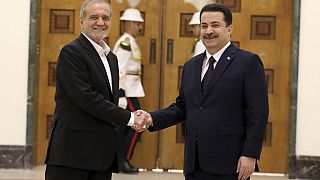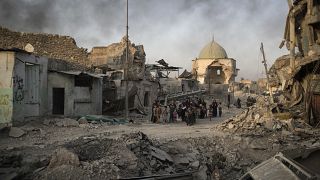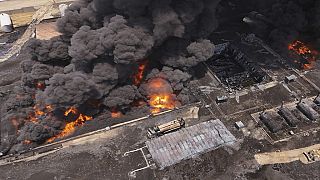Iraq
In Iraq, preserving the gentle art of Arabic calligraphy has been deemed vital for future generations and years.
Jammal Hussein who works at a construction site finds time in the course of the day to also help in preserving this centuries-old writing culture.
He hopes to push “the Iraqi government and the autonomous Kurdistan region to take serious measures” to support Arabic calligraphy and its artists.
Wael al-Ramadan earns money by teaching discipline in schools but also sells his skills for publicity purposes.
"Arabic calligraphy began to spread in the early days of Islam, encouraged by (the exchange of) letters at the time of the Prophet. Thus, the styles (of Arabic calligraphy) varied through the ten writers of the Prophet," said Ramadan.
Last week, the United Nations culture agency declared Arabic calligraphy an “intangible cultural heritage of humanity”, following a campaign by 16 countries led by Saudi Arabia, including Iraq.
Jamal Hussein has been an Arab calligrapher for decades welcomed the UNESCO decision.
"Of course, it is very good news that UNESCO has included Arabic calligraphy as an intangible cultural heritage. It is a great initiative to support this art on a global scale, which shows that the global side of Arabic calligraphy is not limited to Arabic calligraphers," said Ramadan.
But in poor, war-torn Iraq, there is no government support “either for calligraphy or for other arts and the sanctity of the line has declined












01:07
Yale University to offer course on Beyoncé next year
02:14
Gospel music star Tamela Mann speaks about her latest album, 'Live, Breathe, Fight'
02:17
Akazehe: a unique Burundi greeting risks disappearing
02:16
Mandombe writing gains popularity in DRC amid controversy
02:20
Rwandan artists present a "genocide play" in a theater in Pakistan
02:20
War-traumatized children in Kivu find hope through dance amid conflict